 This is Part 2 of Drugs! Are you on diuretics? Part 1 is here and here is Part 3 and Part 4. Following on from all the reasons why you should not take a diuretic, I want to add a caveat about the administration of diuretics with regard to a type of blood pressure known as malignant hypertension.
This is Part 2 of Drugs! Are you on diuretics? Part 1 is here and here is Part 3 and Part 4. Following on from all the reasons why you should not take a diuretic, I want to add a caveat about the administration of diuretics with regard to a type of blood pressure known as malignant hypertension.
Malignant hypertension
Malignant hypertension is a life threatening condition where blood pressure spikes really high and very quickly and can be an extreme medical emergency. Severe symptoms of intense headache, cognitive disruption, visual disturbances, walking problems and speech difficulties are some of the complication of this condition. Emergency use of diuretics for the short term is not challenged here. Note though, that this is a very rare type of hypertension. Most sufferers of high blood pressure are not this severe and many don’t even know they even have high blood pressure.
Diseases prescribed diuretics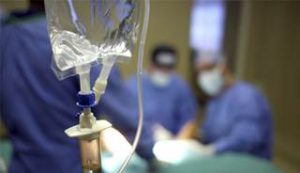
So lets go through a few scenarios of when diuretics are given. I list below a few of the most common conditions for which these drugs are prescribed.
- Hypertension or high blood pressure
- kidney disease/failure
- Cirrhosis of the liver and ascites
- Congestive heart failure
- Venous insufficiency
- General Oedema.
Hypertension or high blood pressure.
Most people don’t feel sick with BP so there’s not usually a general medical emergency associated with it. As we age, BP is often raised a little by the body in response to stiffness and inflexibility and helps to keep the blood flow strong, sounds good to me!
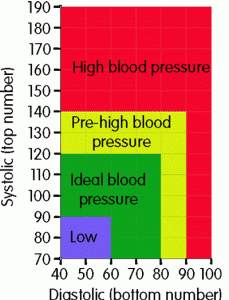 120/80 is just an average
120/80 is just an average
If your BP is slightly over or below the norm, or you have exhibited a higher reading than you do normally at home, you may erroneously be prescribed a diuretic. Diuretics are the number one hypertensive drug to be prescribed. It inevitably won’t work and so it leads nicely onto the patient being prescribed a 2nd drug for hypertension to go with the diuretic. Now you’re on 2 drugs. This is a common scenario.
We’re not all the same
Anyway, who says everyone’s BP has to be 120/80. A little give or take in a reading is normal, isn’t it? Our bodies are not all exactly the same. As for treatment of this common condition, there is nothing better than a good supplement of Magnesium (Mg). As we age our Mg levels will deplete and at the same time our Calcium (Ca) levels will increase. If Ca levels are much higher than Mg then the body is Mg deficient by default. Excess Ca can lead to devastating problems including coronary calcium deposits.
Common side effects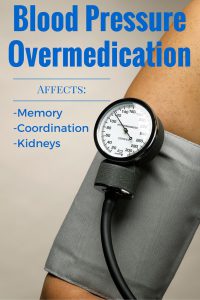
A common side effect with BP drugs is fainting, dizziness or falling when the drug lowers the BP too much. This is a real problem for the elderly who only need to fall once to break a hip. Mg will not interfere to the extent of dropping your BP below optimum levels for your body.
Dehydration is another side effect that is more serious than most realize, depleting precious minerals such as Mg and Potassium (K) and upsetting your electrolytes. This can be dangerous for the heart with arrhythmias being a common side effect. Taken optimally, Mg will hydrate the body and alleviate so many symptoms, you wouldn’t believe. Many of which you are probably suffering from right now!
Kidney disease and kidney failure.
How can these drugs help when it is known that they can actually cause kidney disease? As I said in Part 1 of this article, the kidneys are very delicate and their filtration processes very complex and balanced. Any drug that changes that balance and upsets the process will compromise the kidneys. Without healthy kidneys your life will be problematic and studies have shown that diuretics are not beneficial to kidney function and can in fact shorten the life of a sufferer. – “The use of diuretics in critically ill patients with acute renal failure was associated with an increased risk of death and nonrecovery of renal function.” (from part 1).
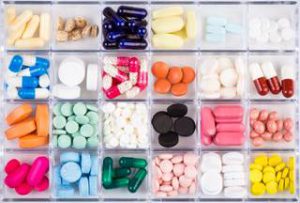 Kidneys have to deal with all drugs
Kidneys have to deal with all drugs
Remember, all drugs end up getting processed through the kidneys and these toxic concoctions should only be used as a last resort, when all else fails. So what can we do to help our kidneys function properly without drugs?
Lifestyle changes have to be made to keep yourself fit and healthy. This is difficult I know because when you’re already under the weather, it takes a strong mentality to pick yourself up and start making those changes that you know you need to do.
But if you don’t want to end up having a miserable unhealthy life, you have to change your paradigms. Make sure you don’t end up with kidney disease. If you already have it, then taking a diuretic will not help. Let nature help you and give yourself the nutrients needed to mend your body.
Cirrhosis of the liver…
Again, diuretics will put a strain on the liver as well as the kidneys. Why would we want to exacerbate an already damaged organ? When the abdomen swells because of liver disease, there are many things you can do to help your liver recover naturally. You MUST be aware of your lifestyle. Your eating habits, your drinking habits, drugs, smoking, lack of exercise. Get these under control and you will be on the way to reducing your symptoms.
and ascites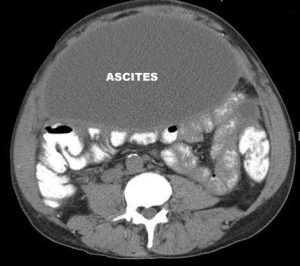
“Ascites is the accumulation of protein-containing (ascitic) fluid within the abdomen. Many disorders can cause ascites, but the most common is high blood pressure in the veins that bring blood to the liver (portal hypertension), which is usually due to cirrhosis.”
A swollen belly is worrisome and distressing and you definitely want to reduce it. Be positive and use it as a barometer of how your new lifestyle is improving your health. This symptom is seldom painful and when you see your stomach slowly diminishing, you will be so proud of the changes you have made to your life and you won’t want to go back.
Congestive heart failure
If your heart is failing it will not be helped by taking a diuretic. Improve heart function naturally. When your legs puff up from right sided heart failure, taking a diuretic is not going to strengthen it. However, with left sided heart failure, fluid may accumulate in the lungs (pulmonary oedema). Breathing can become difficult causing an emergency situation. A diuretic in this case could not be contested, often an IV diuretic is administered, but it will only be a temporary fix.
YOU will change your health not drugs
It is only YOU who can strengthen your heart with a good diet of whole foods and plenty of vegetables and some specific fruits. Avoid junk food like the plague along with junk fats and diet sodas. Start an exercise regime, gently does it and work up slowly. You’ll be surprised how much you will improve when you regularly exercise.
Magnesium magic
Magnesium is an essential key to a healthy heart. It will help avoid heart attacks and lower blood pressure. It will stop painful muscle cramps and relieve digestive problems. It will ensure restful and beneficial sleep and alleviate insomnia and you are bound not to be getting enough of this amazing mineral. Most importantly, it will keep Ca dissolved in the blood which will help disable calcification in the soft tissue.
Your heart has the highest requirement for magnesium than any other organ in the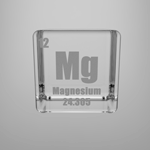 body with the left ventrical needing the most. “Magnesium shines brightest in cardiovascular health. It alone can fulfill the role of many common cardiac medications: magnesium inhibits blood clots (like aspirin), thins the blood (like Coumadin), blocks calcium uptake (like calcium channel-blocking drugs such as Procardia) and relaxes blood vessels (like ACE inhibitors such as Vasotec)” According to the Western A Price Foundation
body with the left ventrical needing the most. “Magnesium shines brightest in cardiovascular health. It alone can fulfill the role of many common cardiac medications: magnesium inhibits blood clots (like aspirin), thins the blood (like Coumadin), blocks calcium uptake (like calcium channel-blocking drugs such as Procardia) and relaxes blood vessels (like ACE inhibitors such as Vasotec)” According to the Western A Price Foundation
Venous insufficiency
This is caused when the venous valves are inefficient at allowing blood back to the heart. It causes swelling in the legs and ankles and can cause pain whilst walking. The skin often is brown usually near the ankles. There is a tendency for varicose veins and leg ulcers.
 Diuretics? Why not try walking!
Diuretics? Why not try walking!
Diuretics will likely be prescribed to take down the swelling. A better and more natural way would be to do more walking. Do you have a dog? If not, how about giving a rescue dog a home and start your walking regime with him. Many patients who have venous insufficiency are overweight and a healthy diet and exercise can do nothing but improve these symptoms. A diuretic will just mask the condition but will not cure it.
You can do it!
Walk as much as possible. Wear supportive tights or socks. Raise the foot of the bed a little. Put your feet up when resting but don’t stay there too long! Get up regularly and walk about. Set your alarm clock or buy one of those ‘fitbits’ to make sure you move every hour and keep a check on your movements. Walk around the house or around the block. Take the dog out, anything to keep you moving.
Diet, diet, diet!
Again, diet is paramount. Plenty of veggies and for fruit eat berries such as blueberries and strawberries. Avocado is a super fruit although many don’t like it including me. Even so I only use avocado oil for cooking it has a very high smoke point so is not damaged by heat. It also has a very delicate flavour that does not taint the food.
General oedema
We all get a little puffy sometimes, perhaps from sitting too long or being too hot or during a long flight. There are healthier ways to deal with it than stressing your kidney function and depleting your nutrients and electrolytes with a diuretic.
 In Part 3
In Part 3
In Part 3 we will summarize the important bits we’ve covered and also go through how you can reduce any oedema with a particular way of eating which has a great side effect of weightloss!
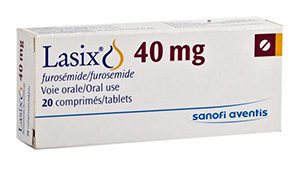
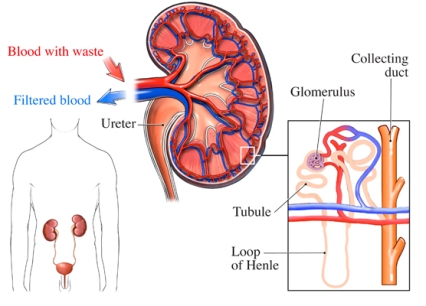 How your kidneys function
How your kidneys function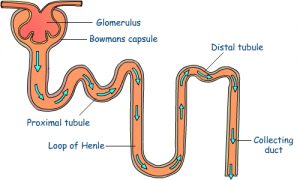
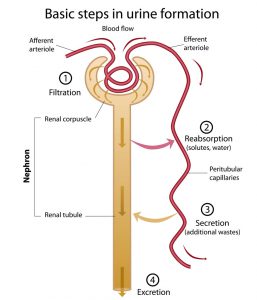 The result of filtration = urine
The result of filtration = urine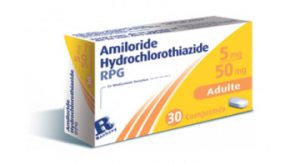
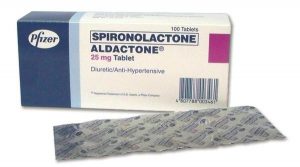
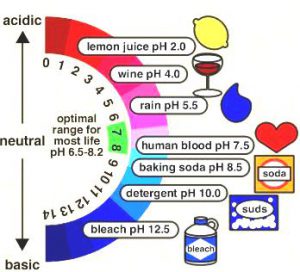 Kidneys and hormones
Kidneys and hormones
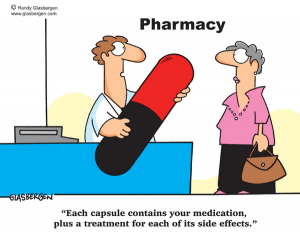 Cavalier tinkering
Cavalier tinkering